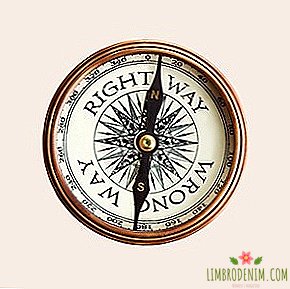"Call to Action" Jimmy Carter: A Textbook of Male Feminism
Text: Stepan Serdyukov
"I understand," call to action, but women, religion, violence and power - how are they related to each other? "- Comedian Stephen Colbert asked Jimmy Carter, under the laughter of the audience, on the air of his program" The Colbert Report. " It is called “A Call to Action: Women, Religion, Violence, and Power.” This is already the twenty-eighth book by Carter, who since 1981 has published, among other things, a collection of poems, reflections on the advantages of old age, the obligatory novel about Civil War. and a religious treatise called "Living Faith".

The combination of "call to action" makes you think about aggressive feminism, and if not about him as a whole, so at least just about the harsh riveter from the poster "We Can Do It!". Of course, there is nothing radical in the book of Jimmy Carter - it is not a revolutionary non-fiction, and certainly not a bold proclamation of a new doctrine. "A Call to Action ..." is a simple and intelligible story about how it is still difficult for women to live, even in the modern world. The main idea of the book is this: until the problem of gender equality is taken separately and seriously, other diseases of society cannot be cured either, because all humanitarian disasters and any institutional injustices in the history of mankind have always beaten the women the most.
Wars, genocides, human trafficking, priesthood issues and ordination; murders for unprofitable dowry, inequality in wages and protection of the law - "A Call to Action ..." leaves nothing to attention. Having released this book, Jimmy Carter became the first American president who approached the problem of women's equality in a comprehensive manner and spoke most fully. Over the past thirty years, all US leaders somehow paid attention to her, being in power - they could not afford to ignore it, especially in the internal affairs of the country - but only Carter finally called to look at it on a global scale. At one time, he left the White House in disgrace: in the elections of 1980, 10 times less electors voted for him than Ronald Reagan. The triumphant conservatives then did a lot to ensure that Jimmy Carter remembered to Americans as a dagger and rag, which even the rabbits were not afraid of. But he took his own way - he founded the Carter Center, a humanitarian foundation, which in twenty years had almost eradicated the wormto worm in Africa and taught many small farmers to more efficiently farm the land.

Jimmy Carter remembered to Americans as a rohla and a rag, which even the rabbits were not afraid of. But he took his

The Carter Center has programs related to politics. But most of the examples of discrimination against women, which are described in the book, are taken precisely from the experience of the Carter Center for the eradication of diseases and the introduction of modern agriculture. Let us take the history of the fight against rishta: the residents of villages where there were no wells suffered from this parasite, and they had to take water from rivers full of larvae. So that no one else is sick, it is enough to do two things: to dig a well and explain to the villagers that it is impossible to drink river water for anything.
With a well, everything is simple: the Carter Foundation found donators - and everything was arranged. It is quite another thing to instill good hygienic habits in people. Here women helped: they carry water, they cook on this water, they wash the houses and children with this water. Carters could rely on them completely. Female volunteers staged demonstrations for their fellow villagers, told them what the risht was and painted pictures with elementary precautions. According to Carter, some of the listeners often saw the image of a man for the first time, and he reacted to the picture of a woman knee-deep in the river: “Better I will have a rishta than I would stay without legs!” (If you still don’t know from Wikipedia what the person affected by such a worm looks like, but you’ve watched Upstream Color, then you already have a pretty good idea of this disease.)
In general, without the active help of women, Carter’s initiative would not have gone far - all the more sad, he says, their subordinate position, in which little has changed even though everyone has seen that without them there is nowhere in such an important matter. Another funny story from "A Call to Action ..." happened in Zimbabwe, where Carter went to present a fund award to one particularly successful farmer. In the village, he was met by a small deputation led by the farmer himself - a nervous man in a dusty suit, worn on occasion. Carter, his wife Rosalyn and his assistants threw a gala dinner. However, he still wanted to look at the farm, which awarded. When Carter said this to the farmer, he became even more nervous, but how could he refuse? We went to the fields. Carter, himself from the farm family, began to ask the landlord questions about agriculture - he could not connect two words and only nodded at his wife. She, looking down, answered any difficult questions. It immediately became clear who actually deserved the reward: the duties of the husband in this household were reduced to caring for the cattle and, of course, to formal domination of the spouse.

Carter talks a lot about women fighting for equality in different countries, and acts very cleverly, highlighting those who do not conform to Western ideas about feminists. Such is, for example, Zayna Anwar, the long-term leader of the Malaysian Sisters in Islam movement (“Persaudaraan Wanita Islam”). Her human rights principles are based on her interpretation of the Koran, where, according to Anwar, the idea of gender equality was originally laid down - it just turned out to be distorted over the years in patriarchal societies such as Malay or Indonesian. "For us, rejecting our faith and becoming feminists is not a choice. We want to be feminists and Muslims," says Zayna Anwar.
In his own reflections on the Qur'an, Jimmy Carter seems to follow this idea too: in any case, he admits that women already have much more rights in this holy book than in the Old Testament (where, as they would say in the song "Bird Em" , harlot stoning stones - click on nuts). He devotes a lot of time to Christian interpretations of the true place of women in the church, recalling not only Jesus’s condescension to the woman taken in adultery and the Samaritan woman who had five men, but also the deaconess institute that existed in the early Christian era, which are mentioned in the Message Apostle Peter to the Romans. Carter himself is a Baptist (Southern Convention), and his wife periodically serves as a deacon in the church in his homeland, in the town of Plains.

In the emancipation of women and their well-being, men should also be actively involved.

Another key idea of "A Call to Action ..." is that men should be actively involved in the liberation of women and their well-being. It is because of their passive approval or inaction that women often fall into the vicious circle of ignorance (many where fathers do not care about the education of girls), poverty and discrimination. At the end of the book, Carter tells a very inspiring story about Mac Giulio Quatayne Masin, the leader of 89 villages in Ntcheu, a Malawian district. In 1996, he ordered all women to find a "secret mother", which can be consulted during pregnancy, and ordered to fine those families where pregnant mothers do not invite midwives to take birth. On his initiative, the girls began to learn the obstetric craft, so that there were enough specialists for everyone. Maternal mortality has begun to decline, and as a result, over the past three years, no woman died in childbirth in the territory ruled by Quataine (where about half a million people live) - and this is in a country that is considered very poor in Africa too. Carter believes that even in the third world there are enough such enthusiasts, then there is no reason for men in more developed countries not to have the courage to reject the last (albeit favorable for them) remnants of paternalism.
Photo: Getty Images / Fotobank, Geoff Holtzman via Flickr.com




